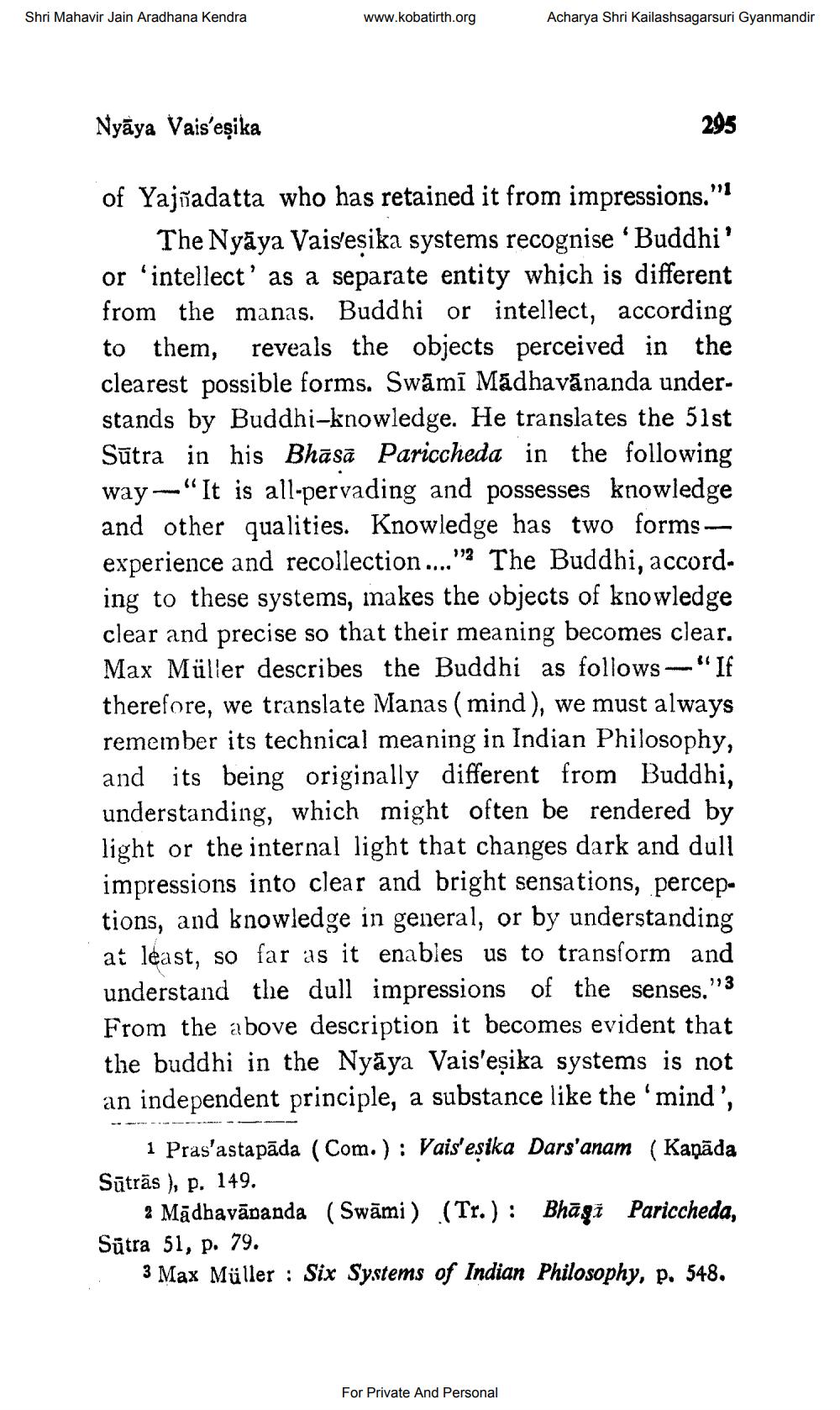________________
Shri Mahavir Jain Aradhana Kendra
www.kobatirth.org
Acharya Shri Kailashsagarsuri Gyanmandir
Nyaya Vais'eşika
of Yajñadatta who has retained it from impressions." The Nyaya Vais'eşika systems recognise 'Buddhi' or 'intellect' as a separate entity which is different from the manas. Buddhi or intellect, according to them, reveals the objects perceived in the clearest possible forms. Swāmī Madhavananda understands by Buddhi-knowledge. He translates the 51st Sūtra in his Bhasa Pariccheda in the following way—“It is all-pervading and possesses knowledge and other qualities. Knowledge has two formsexperience and recollection...." The Buddhi, according to these systems, makes the objects of knowledge clear and precise so that their meaning becomes clear. Max Müller describes the Buddhi as follows-"If therefore, we translate Manas (mind), we must always remember its technical meaning in Indian Philosophy, and its being originally different from Buddhi, understanding, which might often be rendered by light or the internal light that changes dark and dull impressions into clear and bright sensations, perceptions, and knowledge in general, or by understanding at least, so far as it enables us to transform and understand the dull impressions of the senses.' From the above description it becomes evident that the buddhi in the Nyaya Vais'eṣika systems is not an independent principle, a substance like the 'mind',
113
295
For Private And Personal
"11
1 Pras'astapāda (Com.): Vais'eṣika Dars'anam (Kaņāda Sūtrās), p. 149.
2 Madhavananda (Swāmi) (Tr.): Bhaşă Pariccheda, Sutra 51, p. 79.
3 Max Müller: Six Systems of Indian Philosophy, p. 548.




